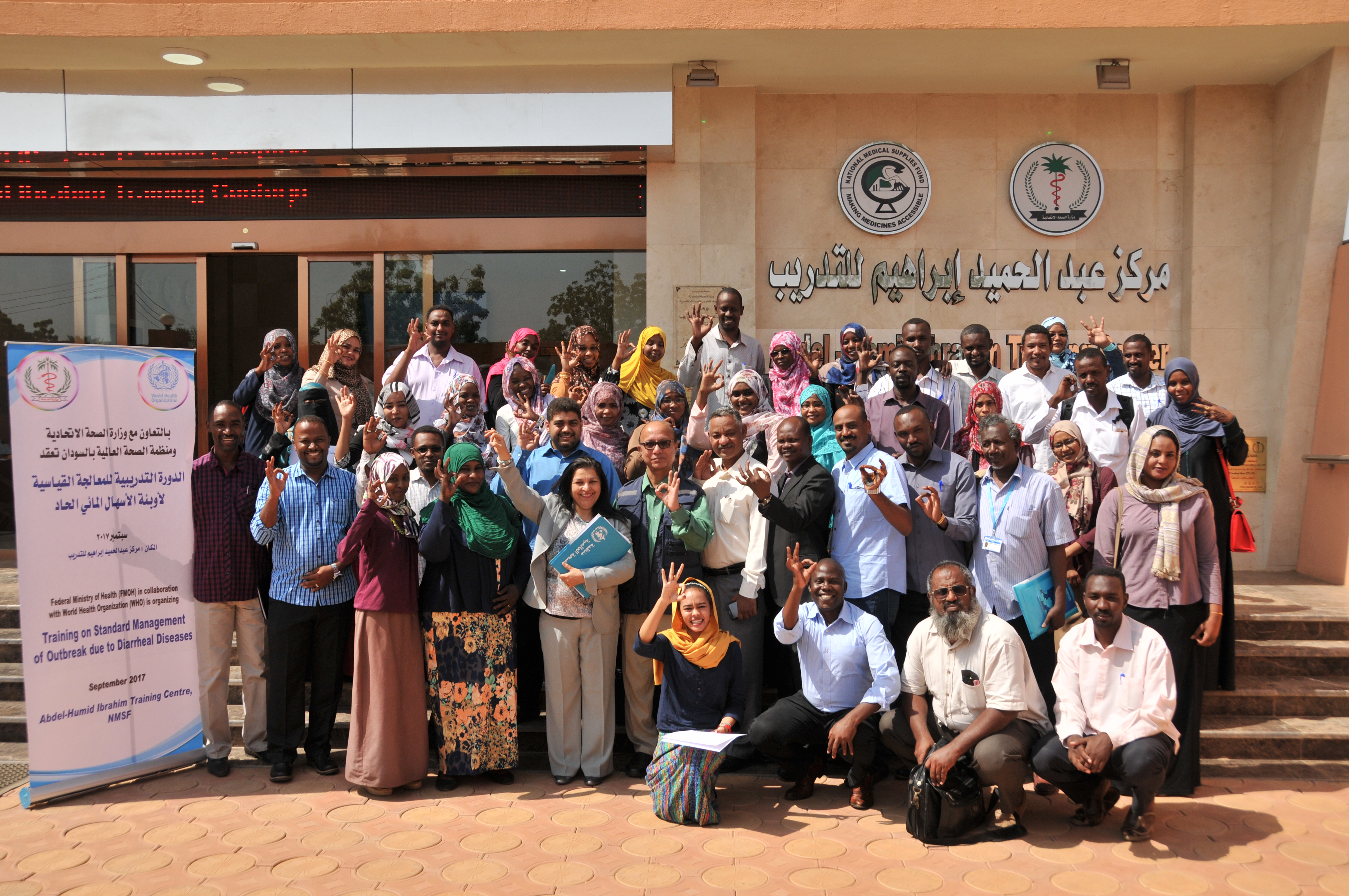 Participants, trainers and WHO Representative for Sudan, Naeema Al Gasseer, hold up the "zero cases" sign after completing their training (Photo: Simon van Woerden/WHO Sudan).
Participants, trainers and WHO Representative for Sudan, Naeema Al Gasseer, hold up the "zero cases" sign after completing their training (Photo: Simon van Woerden/WHO Sudan).
20 September, 2017 - Today at the National Medical Supply Fund in Khartoum, the second group of 35 male and female health practitioners from all over Sudan finished their intensive “training of trainers” on AWD management and containment, organized by WHO and supported by Sudan’s Health Ministry.
The training supported the ongoing response to the Acute Watery Diarrhoea (AWD) outbreak by WHO and Sudan’s Health Ministry, by giving the practitioners new expertise to use in their crucial and life-saving response activities across the country.
Three experts traveled to Sudan from the International Centre for Diarrhoeal Disease Research in Bangladesh (icddr,b), a WHO Collaborating Centre for Diarrhoeal Diseases Research. The three experts, Dr. Azharul Islam Khan, Dr. Md. Sirajul Islam, and Dr. Pradip Kumar Bardhan, shared their combined public health experience of several decades with the 70 local practitioners.
According to Dr. Bardhan, the next crucial step for participants will be to follow-up and using the knowledge in a practical setting. “If you’re not using your newly acquired skills and the knowledge, after a month they will have vanished”, he said.
At the closing ceremony, Dr. Naeema Al-Gasseer, WHO Representative for Sudan, said: “We have to look at health services and the health system differently. AWD is not merely a problem oftreating a disease. It has to be contained through a public health lens . Both its causes and its solutions can be found in all parts of society. This is why we need the Health in All Policies approach, and these new trainees will be a key part of implementing that approach.“
Participants in the training agreed that the experience was highly fruitful and successful, answering all their questions regarding diarrhoeal disease management and control. One of the participants, Elshaffie Haggar, works as WHO Surveillance Officer in North Darfur and said: “Now, each of us needs to use their local resources as much as possible, so that when we think back, we immediately remember our training and are able to share it.” The newly graduated trainees, who were carefully selected by Sudan’s Ministry of Health and WHO, will in turn train their colleagues in the health facilities where they work, creating a snowball effect and reducing the death toll that AWD exacts across Sudan


